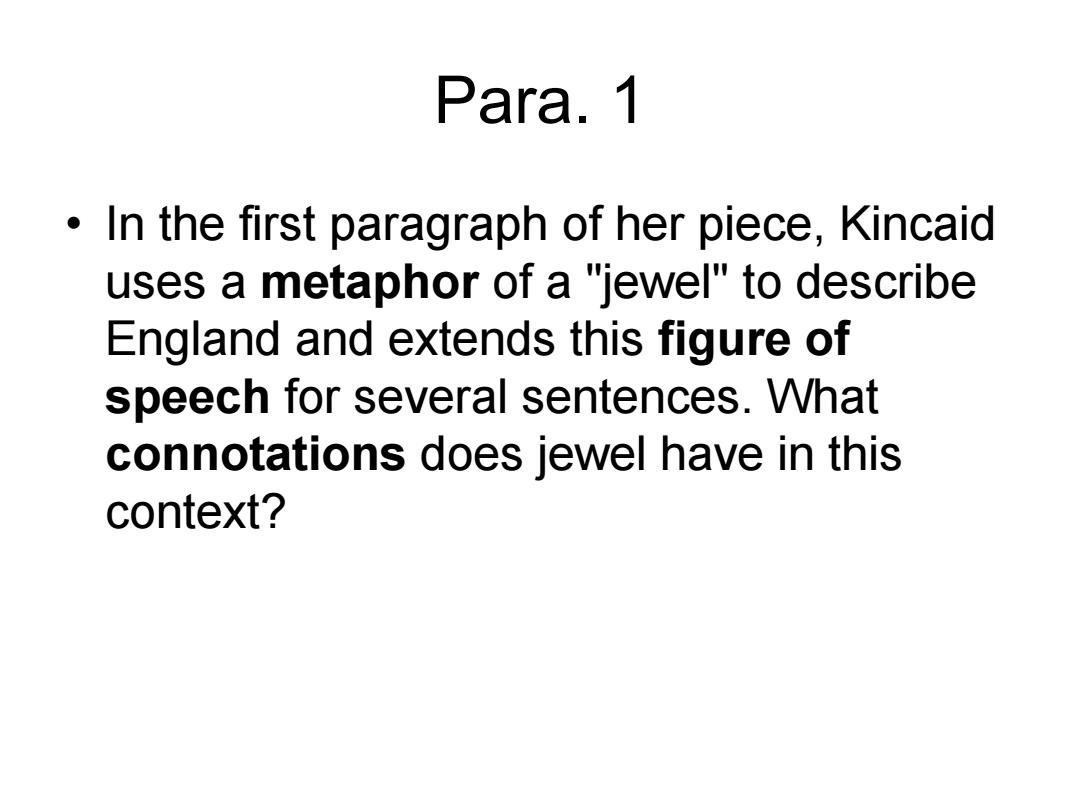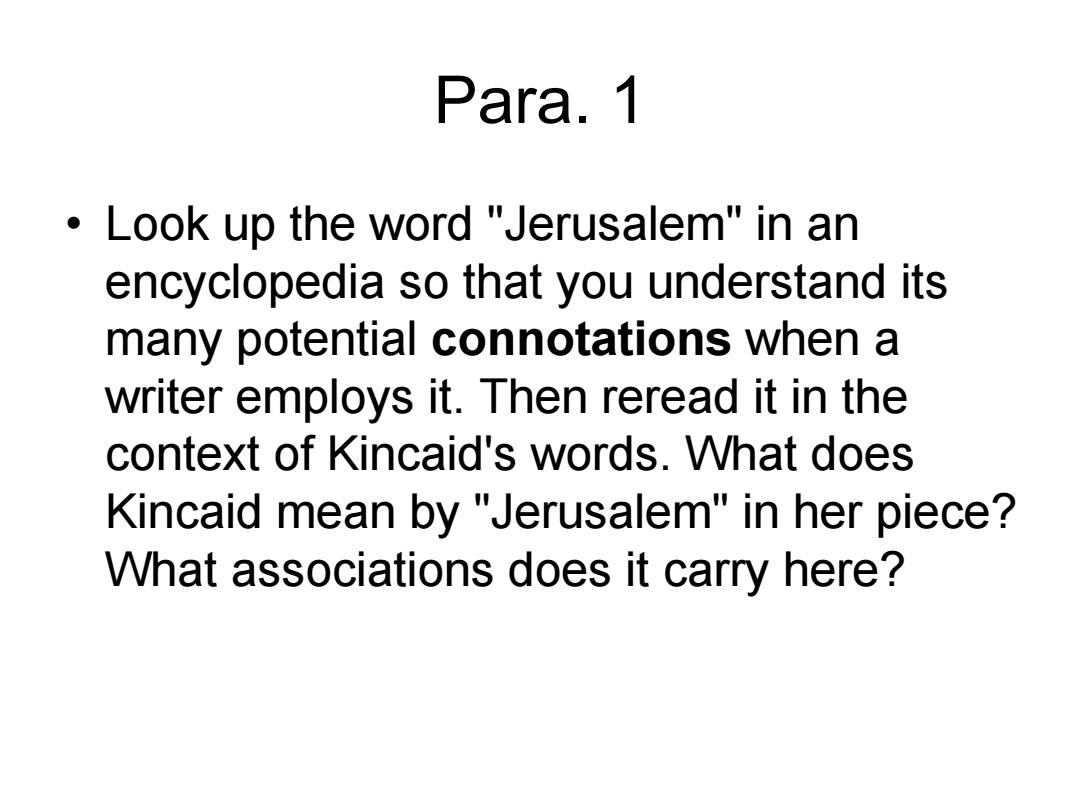
Para.1 In the first paragraph of her piece,Kincaid uses a metaphor of a "jewel"to describe England and extends this figure of speech for several sentences.What connotations does jewel have in this context?
Para. 1 • In the first paragraph of her piece, Kincaid uses a metaphor of a "jewel" to describe England and extends this figure of speech for several sentences. What connotations does jewel have in this context?

Para.1 Compare the three following descriptions of England:one with a metaphor,one with a simile,and one with a sensory detail.Identify the differences in the connotations of diction in each description.By the end of this piece,which image of England fits the rest of Kincaid's details the best:the jewel,the mutton,or the veins?Why?
Para. 1 • Compare the three following descriptions of England: one with a metaphor, one with a simile, and one with a sensory detail. Identify the differences in the connotations of diction in each description. By the end of this piece, which image of England fits the rest of Kincaid's details the best: the jewel, the mutton, or the veins? Why?

Para.1 Look up the word "Jerusalem"in an encyclopedia so that you understand its many potential connotations when a writer employs it.Then reread it in the context of Kincaid's words.What does Kincaid mean by "Jerusalem"in her piece? What associations does it carry here?
Para. 1 • Look up the word "Jerusalem" in an encyclopedia so that you understand its many potential connotations when a writer employs it. Then reread it in the context of Kincaid's words. What does Kincaid mean by "Jerusalem" in her piece? What associations does it carry here?

Para.1 Kincaid writes,"England was to be our source myth and the source from which we got our sense of reality,our sense of what was meaningful,our sense of what was meaningless."What are the connotations of the phrase "source myth"? How do examples used later show that England is both a "source"and "mythic"?
Para. 1 • Kincaid writes, "England was to be our source myth and the source from which we got our sense of reality, our sense of what was meaningful, our sense of what was meaningless." What are the connotations of the phrase "source myth"? How do examples used later show that England is both a "source" and "mythic"?